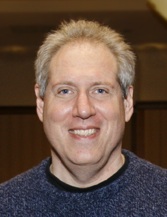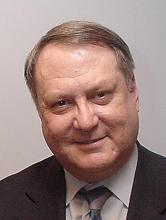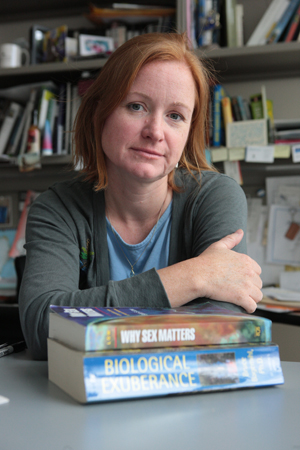By August Berkshire
 In the early days of the atheist/humanist movement, we looked to the Unitarian Universalist (UU) churches for some of our new members. This made sense because, until our groups formed, the UU churches were the most nontheistic organizations around. They offered humanistic programs and tended to use words like “god” and “spirit” metaphorically. Some of their members embraced a more openly atheistic group like ours and joined us.
In the early days of the atheist/humanist movement, we looked to the Unitarian Universalist (UU) churches for some of our new members. This made sense because, until our groups formed, the UU churches were the most nontheistic organizations around. They offered humanistic programs and tended to use words like “god” and “spirit” metaphorically. Some of their members embraced a more openly atheistic group like ours and joined us.
Today, as the UU membership ages and dwindles, we find them looking to our atheist and humanist groups for members. But the problem is is that atheists and secular humanists are neither Unitarians (believing in one supernatural god) nor Universalists (believing in supernatural salvation for all). So, while politically most of us would vote the same way most UU members would, UU churches really aren’t a good fit for most atheists.
.
Read more: Unitarian Universalists?
By George Kane
 I was pleased to learn before this election that my polling place had moved from Como Park Lutheran Church to the North Dale Recreation Center, even though it is a couple of miles from my home. When I lived in California, I always voted at a public school. I don’t know if California ever uses churches as polling places, but I found the practice here in Minnesota to be an unsettling mix of the sacred with the civic act of voting. This election provided considerable evidence that it is time for Minnesota to end the practice. Many churches are activists in political issues these days, and cannot be trusted to provide a politically neutral environment.
I was pleased to learn before this election that my polling place had moved from Como Park Lutheran Church to the North Dale Recreation Center, even though it is a couple of miles from my home. When I lived in California, I always voted at a public school. I don’t know if California ever uses churches as polling places, but I found the practice here in Minnesota to be an unsettling mix of the sacred with the civic act of voting. This election provided considerable evidence that it is time for Minnesota to end the practice. Many churches are activists in political issues these days, and cannot be trusted to provide a politically neutral environment.
.
Read more: News and Notes
By Eric Jayne
 One week after 2013 arrived, my dad called and said he began receiving hospice care for congestive heart failure. I went to Iowa to visit him two days later. When I got there he was lying in his bed, struggling to breathe because his heart was having trouble pumping oxygenated blood. We talked a little about his health and how the weather was during my 4-hour drive, and then we reminisced about some distant shared memories. When dinner time came Dad took me up on my offer to bring him a beer and an enchilada from one of our favorite local restaurants. After enjoying our feast the nurses and staff came in to administer pain meds and adjust his large, heavy body the way he requested. He thanked me for dinner then proceeded to fall sleep. I gave him a hug and began my journey back home. I received a call from my stepmother just after midnight the next night. She tearfully reported that Dad died a few minutes ago.
One week after 2013 arrived, my dad called and said he began receiving hospice care for congestive heart failure. I went to Iowa to visit him two days later. When I got there he was lying in his bed, struggling to breathe because his heart was having trouble pumping oxygenated blood. We talked a little about his health and how the weather was during my 4-hour drive, and then we reminisced about some distant shared memories. When dinner time came Dad took me up on my offer to bring him a beer and an enchilada from one of our favorite local restaurants. After enjoying our feast the nurses and staff came in to administer pain meds and adjust his large, heavy body the way he requested. He thanked me for dinner then proceeded to fall sleep. I gave him a hug and began my journey back home. I received a call from my stepmother just after midnight the next night. She tearfully reported that Dad died a few minutes ago.
.
Read more: Cancel My Subscription to the Resurrection
By August Berkshire
 A personal long-term goal has been to persuade enough members of each group that Minnesota Atheists should merge with the Humanists of Minnesota.
A personal long-term goal has been to persuade enough members of each group that Minnesota Atheists should merge with the Humanists of Minnesota.
The roots of our groups started independently, and with no knowledge of each other, in the mid-1980s. Back then it made more sense to have two groups. Atheists (inspired by Madalyn Murray O’Hair) were viewed as quite militant. There was also the false equivalency of atheism with communism and being unAmerican. Consequently, many humanists were afraid of publicly using the word “atheist.” Moreover, humanists wanted a group that represented more than what they were against (belief in the supernatural).
.
Read more: President's Column: Atheist and Humanists Together?
 In honor of Charles Darwin's birth month, our February speaker will be Sehoya Cotner, who will discuss "Fun Myths About Evolution Explored."
In honor of Charles Darwin's birth month, our February speaker will be Sehoya Cotner, who will discuss "Fun Myths About Evolution Explored."
Evolution is among the most contentious topics in our society, in part due to key misconceptions about the theory. Some of these are iconic (humans evolved from chimpanzees, survival of the fittest), some more esoteric (evolution is a belief system, Darwin discovered evolution, evolution is a random process). We'll discuss evolution itself, some key misconceptions, and potential negative consequences of falling victim to evolutionary myths.
.
Read more: Fun Myths about Evolution Explored
 In the early days of the atheist/humanist movement, we looked to the Unitarian Universalist (UU) churches for some of our new members. This made sense because, until our groups formed, the UU churches were the most nontheistic organizations around. They offered humanistic programs and tended to use words like “god” and “spirit” metaphorically. Some of their members embraced a more openly atheistic group like ours and joined us.
In the early days of the atheist/humanist movement, we looked to the Unitarian Universalist (UU) churches for some of our new members. This made sense because, until our groups formed, the UU churches were the most nontheistic organizations around. They offered humanistic programs and tended to use words like “god” and “spirit” metaphorically. Some of their members embraced a more openly atheistic group like ours and joined us.

 I was pleased to learn before this election that my polling place had moved from Como Park Lutheran Church to the North Dale Recreation Center, even though it is a couple of miles from my home. When I lived in California, I always voted at a public school. I don’t know if California ever uses churches as polling places, but I found the practice here in Minnesota to be an unsettling mix of the sacred with the civic act of voting. This election provided considerable evidence that it is time for Minnesota to end the practice. Many churches are activists in political issues these days, and cannot be trusted to provide a politically neutral environment.
I was pleased to learn before this election that my polling place had moved from Como Park Lutheran Church to the North Dale Recreation Center, even though it is a couple of miles from my home. When I lived in California, I always voted at a public school. I don’t know if California ever uses churches as polling places, but I found the practice here in Minnesota to be an unsettling mix of the sacred with the civic act of voting. This election provided considerable evidence that it is time for Minnesota to end the practice. Many churches are activists in political issues these days, and cannot be trusted to provide a politically neutral environment. One week after 2013 arrived, my dad called and said he began receiving hospice care for congestive heart failure. I went to Iowa to visit him two days later. When I got there he was lying in his bed, struggling to breathe because his heart was having trouble pumping oxygenated blood. We talked a little about his health and how the weather was during my 4-hour drive, and then we reminisced about some distant shared memories. When dinner time came Dad took me up on my offer to bring him a beer and an enchilada from one of our favorite local restaurants. After enjoying our feast the nurses and staff came in to administer pain meds and adjust his large, heavy body the way he requested. He thanked me for dinner then proceeded to fall sleep. I gave him a hug and began my journey back home. I received a call from my stepmother just after midnight the next night. She tearfully reported that Dad died a few minutes ago.
One week after 2013 arrived, my dad called and said he began receiving hospice care for congestive heart failure. I went to Iowa to visit him two days later. When I got there he was lying in his bed, struggling to breathe because his heart was having trouble pumping oxygenated blood. We talked a little about his health and how the weather was during my 4-hour drive, and then we reminisced about some distant shared memories. When dinner time came Dad took me up on my offer to bring him a beer and an enchilada from one of our favorite local restaurants. After enjoying our feast the nurses and staff came in to administer pain meds and adjust his large, heavy body the way he requested. He thanked me for dinner then proceeded to fall sleep. I gave him a hug and began my journey back home. I received a call from my stepmother just after midnight the next night. She tearfully reported that Dad died a few minutes ago. In honor of Charles Darwin's birth month, our February speaker will be Sehoya Cotner, who will discuss "Fun Myths About Evolution Explored."
In honor of Charles Darwin's birth month, our February speaker will be Sehoya Cotner, who will discuss "Fun Myths About Evolution Explored."